Lesson 4: The economy needs a specialized agency to represent state capital in the true sense and with sufficient strength.
Based on the actual operations of the State Capital Management Committee at enterprises after 6 years of establishment, experts believe that it is necessary to strengthen the role and functions of the Committee in conjunction with the independence of the state-owned enterprise system.
“Increasing the functional role of the State Capital Management Committee at enterprises”
Associate Professor, Dr. Tran Dinh Thien, former Director of Vietnam Economic Institute
The economy has just gone through 6 years with many unusual changes, but during this time, 19 corporations and groups under the State Capital Management Committee at Enterprises (the Committee) have achieved remarkable results. This shows great efforts and partly proves the effectiveness of the model of a specialized agency representing the ownership of state capital.
 |
| Associate Professor, Dr. Tran Dinh Thien, former Director of Vietnam Economic Institute. |
However, we must look directly at reality to see that the operation of this model still has many difficulties.
For example, the independence of the role of capital owner between the Commission assigned this function and other agencies and member enterprises. When it is not clear, it is very difficult to operate.
There are some things that the Committee has to ask for the opinion of a department-level unit in the Ministry. The operating mechanism in that space is very difficult for the Committee. In fact, we have regulations and institutions that make it impossible to do many things well, even if we have the capacity.
From now on, the priority is to accelerate the restructuring of state capital to clearly define the model of the Committee, ensuring faster and more effective operations. Shaping state assets, associated with it are the functions and tasks of the capital representative agency, while business administration is the business's job.
Reality has proven that the higher the level of authority and accountability, the stronger the performance of agencies. Therefore, it is necessary to strengthen the role and functions of the State Capital Management Committee in enterprises in conjunction with the independence of the state-owned enterprise system as a real force of the economy.
“Towards an independent agency model subject to the supervision of the National Assembly and the Government”
Dr. Nguyen Duc Kien, Economic Expert
The establishment of the State Capital Management Committee at Enterprises has separated the capital ownership function and the state management function. After 6 years of operation, this model has some bright spots.
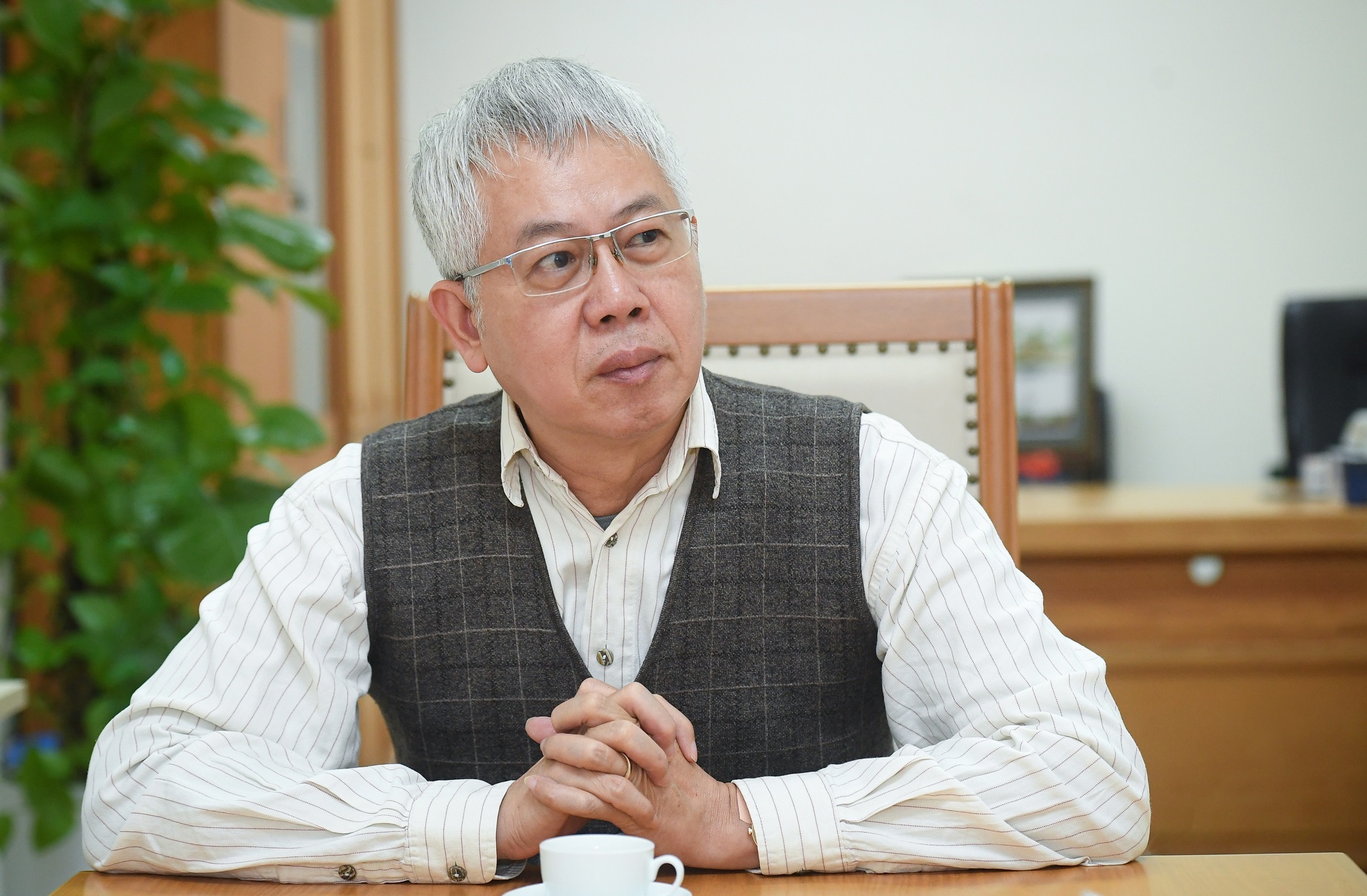 |
| Dr. Nguyen Duc Kien, Economic Expert. |
One is to not interrupt the production and business activities of the corporations and general companies that move back.
Second, act as a representative voice for state-owned enterprises to submit to competent authorities, especially clearly identifying the shortcomings that state-owned enterprises face in a socialist-oriented economy.
Third, support and help state-owned enterprises grow even during difficult times and epidemics.
Many state-owned enterprises recorded good growth rates and participated in providing material conditions for the Government to manage the economy. It is worth mentioning that Vietnam Electricity Group (EVN) decided to reduce 23,000 billion VND for businesses in difficulty. ACV reduced 8,700 billion VND in costs for take-off and landing fees, taxiways, and runways to support aviation transport businesses.
These are examples that show the important role that the state-owned enterprise sector plays in maintaining macroeconomic stability. In addition, state-owned enterprises are also a material tool to regulate the economy in times of volatility and instability. For example, flights to bring Vietnamese people abroad back due to the Covid-19 pandemic are all operated and paid for by Vietnam Airlines.
However, it must also be clear that evaluating state-owned enterprises must always be viewed from two aspects: implementing political tasks and production and business.
This is the time to continue to improve the apparatus of the State Capital Management Committee at Enterprises. Specifically, there should be specific regulations on the rights and functions of the Committee in the Law replacing the Law on Management and Use of State Capital Invested in Production and Business at Enterprises (Law 69/2014) which is being drafted, and can move towards becoming an independent agency subject to the supervision of the National Assembly and the Government.
The best solution is to thoroughly reform, build laws so that the Commission operates according to the law (as with the State Audit model), clarify the functions, roles and empower this agency specifically and clearly.
If this is not possible, the law must be amended in a more reasonable manner, based on expert opinions, actual operations of state capital representative agencies, and feedback from businesses.
This is also an opportunity to orient specific steps to implement the Resolution of the 13th National Party Congress, an opportunity to focus intellectual resources and change regulations that are no longer appropriate. Institutional factors can be completely handled so that national assets operate effectively and have international competitiveness.
To do this, it requires that the very fundamental issues of the Committee be clearly defined and legalized, such as functions, positions, and roles. Along with that is the determination in restructuring state-owned enterprises.
“The State is also an investor, complying with the rules of the market”
Mr. Nguyen Ba Hung, Chief Economist of the Asian Development Bank ( ADB)
With the state-owned enterprise sector, it is necessary to clarify the question: Where do we want state-owned enterprises to go, and from there find appropriate solutions.
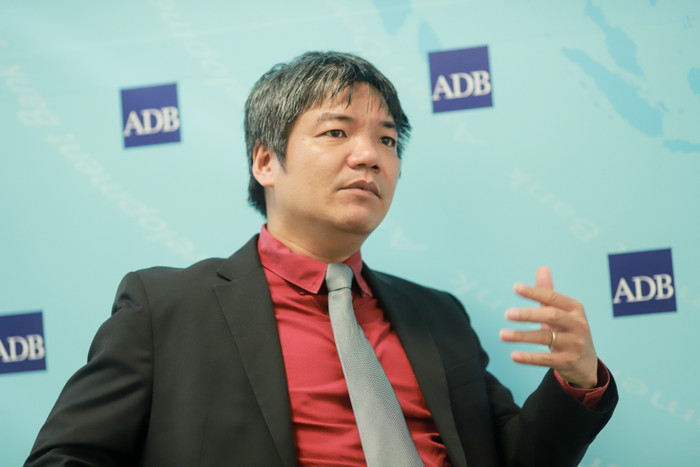 |
| Mr. Nguyen Ba Hung, Chief Economist of Asian Development Bank (ADB). |
In fact, there are many groups of state-owned enterprises with different characteristics. Some groups play an important role in economic security, such as oil and gas, electricity, gasoline; some groups play a public-social role such as urban environment, irrigation, water supply and drainage, green parks; some groups are completely market-oriented, such as pharmaceuticals, steel, food, chemicals, fertilizers, etc.
Therefore, there should be different groups and regulations and management methods because each group of businesses needs different restructuring solutions.
The separation of state management and state capital management associated with the representative ownership agency such as the State Capital Management Committee at Enterprises needs to continue to be promoted. Accordingly, excluding specific industries and fields, state capital should be managed and operated like capital of other economic sectors, the state is also an investor, complying with the rules of the market.
When deciding to maintain state-owned enterprises in industries, it is necessary to answer the question, why should we keep them? If we do not measure profits, we must measure their effectiveness to the economy.
For example, in the energy sector, it is necessary to clarify their role in energy security. If not, it will cause difficulties in system investment, leading to power shortages and not keeping up with development needs.
Experience in the UK, the railway industry had to spend 15-20 years restructuring. Accordingly, the state owned and managed the rail and signal system, privatized the trains. Train companies bid for licenses to run routes, creating service competition, so since 2004 their trains have had good service, wifi... Thanks to the convenience of the railway, on the one hand the state collected money for operations and infrastructure investment, on the other hand it promoted population expansion to the suburbs, achieving the state's strategic macro goals.
The profits of state-owned enterprises are currently transferred to the budget, but we must also take into account their reinvestment. In this case, we return to the question, what is the purpose of retaining profits?
If there are other strategic interests, the owner should have the right to withdraw those profits. If the State Capital Management Committee at the enterprise has an investment tool, it can withdraw capital and put it into that tool. The owner's representative unit must have additional rights to increase and withdraw capital.
The world has had successful models, Vietnam has the advantage of observing, learning and applying.
Source: https://baodautu.vn/bai-4-nen-kinh-te-can-co-quan-chuyen-trach-dai-dien-von-nha-nuoc-dung-nghia-du-manh-d227958.html


![[Photo] Prime Minister Pham Minh Chinh chairs meeting on science and technology development](https://vphoto.vietnam.vn/thumb/1200x675/vietnam/resource/IMAGE/2025/5/17/ae80dd74c384439789b12013c738a045)
![[Photo] More than 17,000 candidates participate in the 2025 SPT Competency Assessment Test of Hanoi National University of Education](https://vphoto.vietnam.vn/thumb/1200x675/vietnam/resource/IMAGE/2025/5/17/e538d9a1636c407cbb211b314e6303fd)

![[Photo] Readers line up to visit the photo exhibition and receive a special publication commemorating the 135th birthday of President Ho Chi Minh at Nhan Dan Newspaper](https://vphoto.vietnam.vn/thumb/1200x675/vietnam/resource/IMAGE/2025/5/17/85b3197fc6bd43e6a9ee4db15101005b)









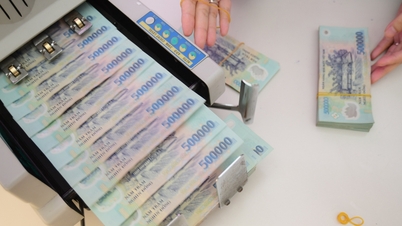




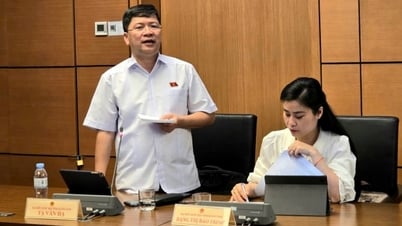

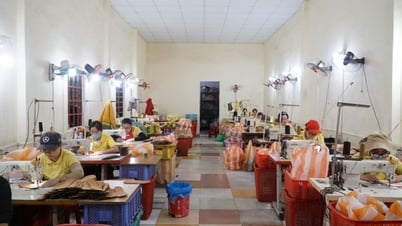











![[Photo] Nearly 3,000 students moved by stories about soldiers](https://vphoto.vietnam.vn/thumb/1200x675/vietnam/resource/IMAGE/2025/5/17/21da57c8241e42438b423eaa37215e0e)



















































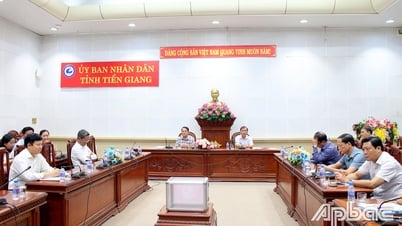

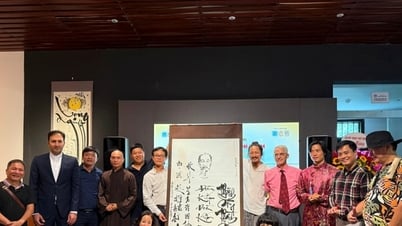














Comment (0)